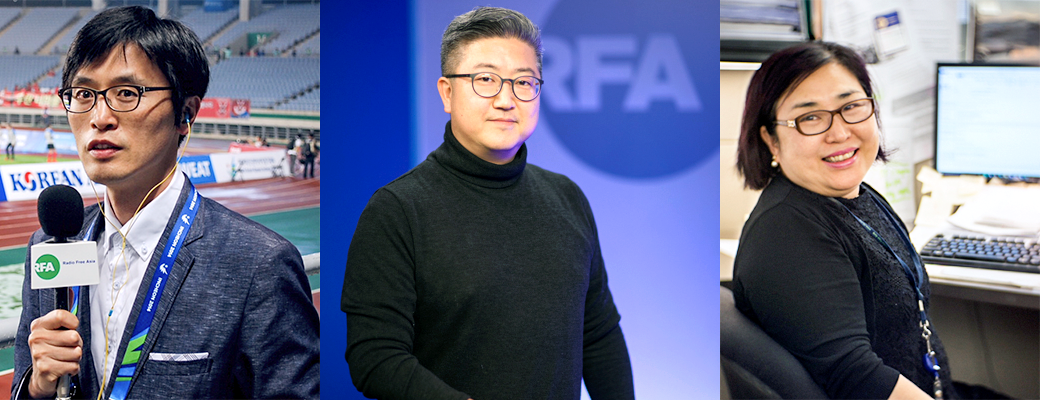The producers of “Human Capital”, 2017 winner

Starting in late 2015 and going through the fall of 2016, three reporters from RFA’s Korean Service—Albert Hong, Jae-wan Noh, and Hee Jung Yang—investigated North Korea’s overseas labor throughout the world—a means for the regime of Kim Jong Un to fill its almost empty coffers with hard currency.
The journalists’ combined efforts, which took them to seven countries in four continents, resulted in RFA’s in-depth multimedia series, Human Capital: North Korean Workers Abroad Earn Hard Currency for the Regime. This series of on-the-ground reports resulted in media citations and reaction among governments of countries hosting North Korean workers.
Desperate for hard currency, North Korea has been forcibly sending tens of thousands of its citizens abroad to earn cash for the state, dispatching construction workers to the Middle East and Northeast Asia, farmhands to Poland, doctors to staff unlicensed medical facilities in countries in Africa, and waitresses for restaurants in Cambodia catering to South Korean tourists.
The production team went to these places themselves to document the lives of these workers in Africa, the Middle East, Europe, and Asia. Hong traveled to Tanzania and Kuwait in December 2015 and January 2016, Noh visited Cambodia and Mongolia in April and May 2016, and Yang went to Poland and Malta in September 2016.
Together, the reporters exposed the difficult workplace conditions, the workers’ outrageously low wages and small compensation, and the poor quality of services at North Korean-run health facilities in African countries, among other issues.
Real-world impact
Hong’s investigative reporting on North Korean clinics in Tanzania resulted in the country’s government ordering the closing of two North Korean clinics in the major port city of Dar es Salaam on April 15, two months after RFA’s Korean Service aired his investigative reports on North Korean medical workers’ questionable practice in the African country. Tanzania’s leading English newspaper, The Citizen, reported on June 7, 2016, that the parent of a patient treated by North Korean doctors in Dar Es Salaam plans to sue the North Korean “rogue clinic.”
Following the reporting on North Korean medical workers’ dubious treatment of local patients, South Korea’s influential daily Chosun Ilbo sent a correspondent to Tanzania to look into the malpractice perpetrated by North Korean medical workers in the country. (In a follow-up report, sources told RFA’s Korean Service that the South Korean ambassador to Tanzania met with the Tanzanian Minister of Health and showed him RFA’s investigative reports translated into English. The Minister instructed his deputy to visit the North Korean clinics in question and shut them down the same week.)
Noh interviewed North Koreans working at restaurants and a museum run by North Korea in Siem Reap, Cambodia. Noh also went to Ulaanbaatar in Mongolia, where he reported on the dismal working conditions for North Korean textile workers, who are mostly women, and the meager wages for North Korean construction workers who are forced to pay also for their own lodgings.
Yang’s trip to Poland, where North Koreans work on farms and in shipyards, uncovered details of their work in the country and the history of North Korean labor in Europe. She also interviewed European officials and experts including those at the Netherlands’ Leiden University Asia Center, which did a comprehensive project research on North Korean forced laborers in the continent.
